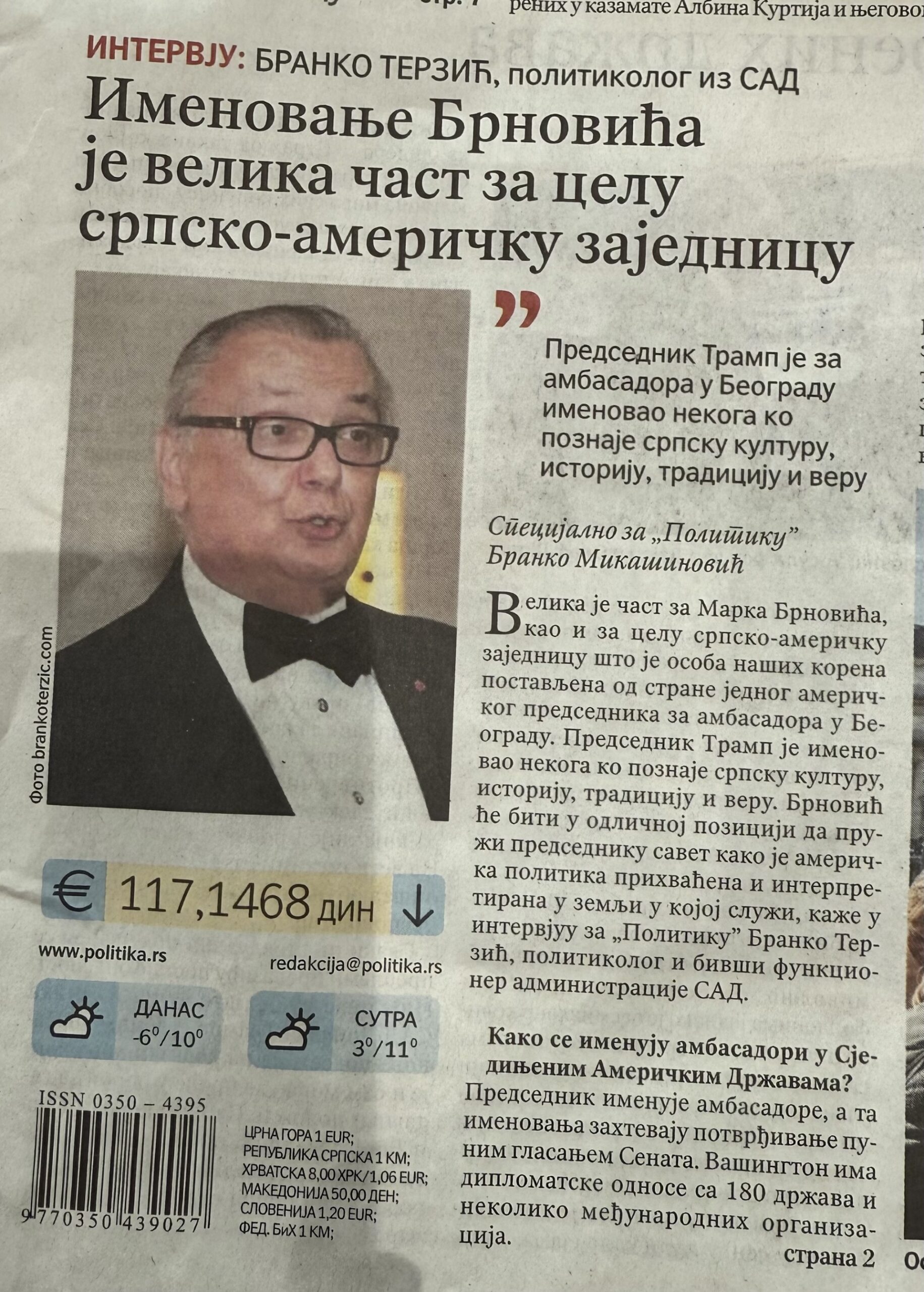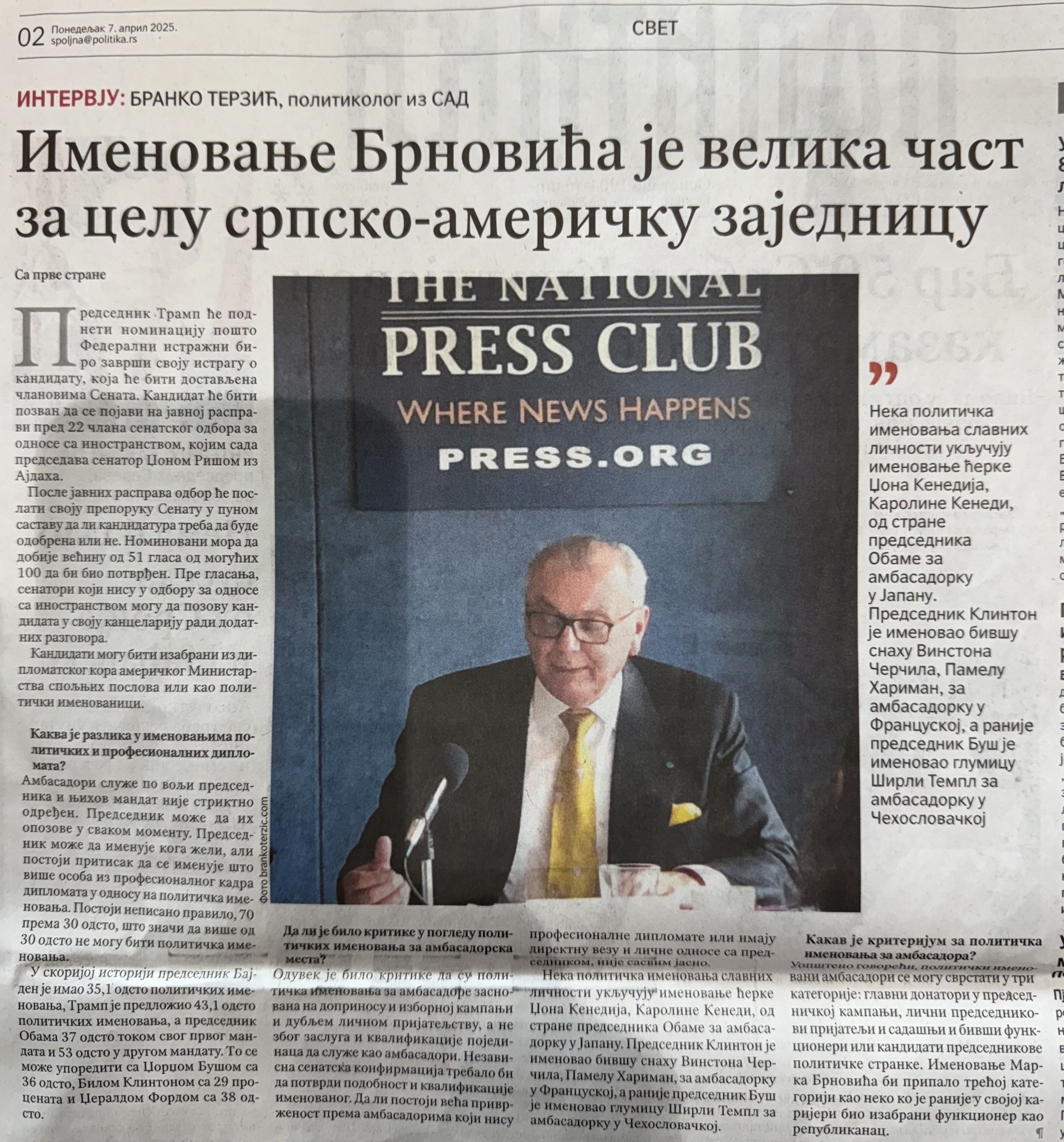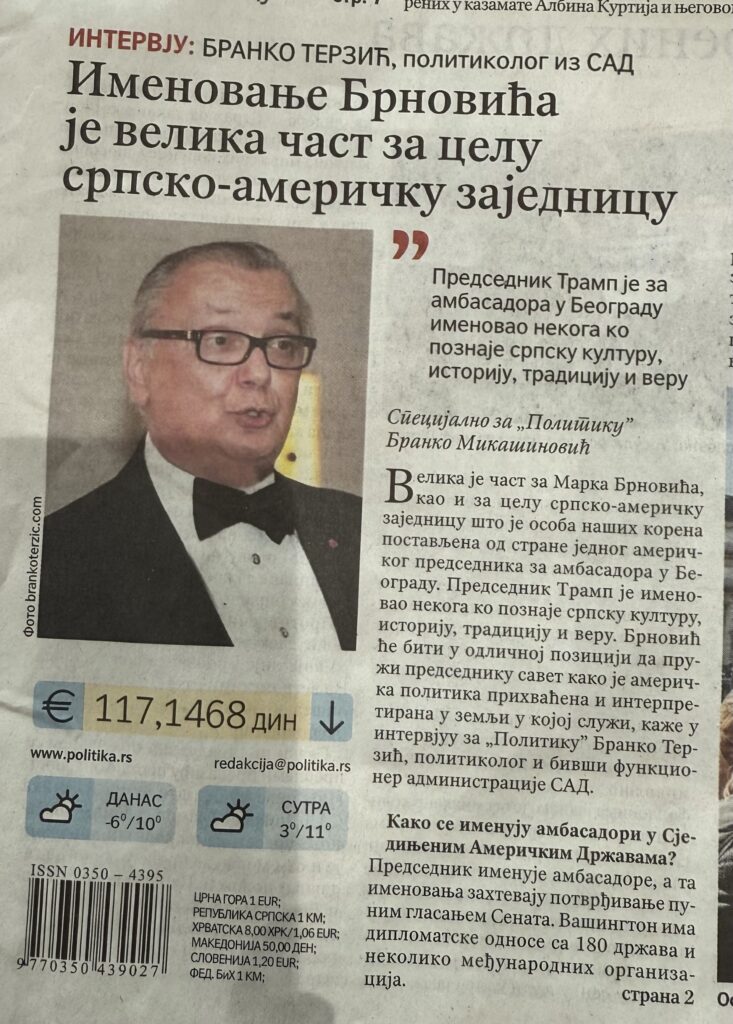POLITIKA April 7, 2025
Belgrade Serbia
From page 1
Interview: BRANKO TERZIC, political analyst USA



The naming of Brnovich is a great honor for the entire Serbian-American Community
“President Trump has nominated someone who knows the culture, history and religion.”
Special for POLITKA Branko Mikasinovich
1) What is the significance of the announcement by President Donald Trump that he has nominated the former Arizona Attorney General Mark Brnovich as Ambassador to Serbia?
It is a personal honor for Mark Brnovich and also for the national Serbian American community to have someone from within our community made a presidential appointee... President Trump has nominated someone who knows the culture, history and religion of Serbia and will be in an excellent position to advise on how US foreign Polices are accepted and interpreted in the country.
2) How are ambassadors appointed in the United States?
The President makes the appointment of Ambassadors, and those appointments then require confirmation by a full vote of the US Senate. The US has diplomatic relations with about 180 countries and a few international organizations. The President will make the nomination after the FBI has concluded a background check which will be made available to the senators. The candidate will be called to appear in a public hearing before the twenty-two members Senate Foreign Relations Committee under Chairman Senator John Risch of Idaho. The Committee, after holding hearings, will vote and send a recommendation to the full senate as to whether the candidate should be elected or not. The nominee must receive a majority (51 of 100) of the Senate to be confirmed. Before the vote senators not on the Foreign Relations Committee can call the candidates to their offices for private interviews. The candidates come from the ranks of the diplomatic corps the US Foreign Service and are political appointees of the president.
3) What is the difference in political and foreign service appointments to ambassadorship?
Ambassadors serve at the pleasure of the president with no fixed term. They are subject to recall by the president at any time... The President can appoint anyone he wants as an ambassador but there is pressure to retain as many positions as possible for the professional diplomatic corps called the U.S. Foreign Service. Ambassadorial appointments are carefully followed as to what percentage career diplomats versus political appointees are. There is an unwritten “70-30” rule which indicates that no more than 30% of ambassadorial appointments should be political with most positions going to career diplomats.
In recent history President Biden made 35.1% political appointments, in his first term President Trump made 43.1% political, President Obama made 37% political ambassadorial appointments in his first term and 53% in his second per one report. This compares to George W. Bush political appointments to ambassadorships at 36%, Bill Clinton at 29%, George H.W. Bush at 31% and Gerald Ford 38%.
4) Has there been criticism of political appointees to Ambassador positions?
The has always been criticism that the “political” appointments to the position of Ambassador were made based on campaign contributions, or cronyism rather than on the merit and qualifications of the individual to serve as ambassador to the specific country. The independent Senate confirmation process is supposed to confirm the suitability and qualifications of the individual to the specific Ambassadorship. Whether countries prefer professional diplomats as their ambassador from the US is not clear. Many countries are pleased to receive an ambassador who is not a professional diplomat but is viewed as having a direct connection and personal relationship with the President.
Some celebrity political appointments have included President Obama’s nomination of John F. Kennedy’s daughter Caroline Kennedy as Ambassador to Japan, President Clinton’s nomination of Winston Churchill’s former daughter-in-law Pamela Harriman as Ambassador to France and earlier President Bush’s nomination of the child-star movie actress Shirley Temple as Ambassador to Czechoslovakia.
5) What has been the criteria for political appointments as ambassador?
Generally the politically appointed ambassadors are in three categories: 1) major donors to the president’s campaign, 2) personal friends of the president and 3) current and former political office holders or candidates of the president’s political party. The nomination of Mark Brnovich would appear to be in the third category as someone who held an elected position as a Republican earlier in his career.
#BrankoTerzic #Serbia #Politcal #Ambassasdor #Senator #President #US #Interview #POLITKA

